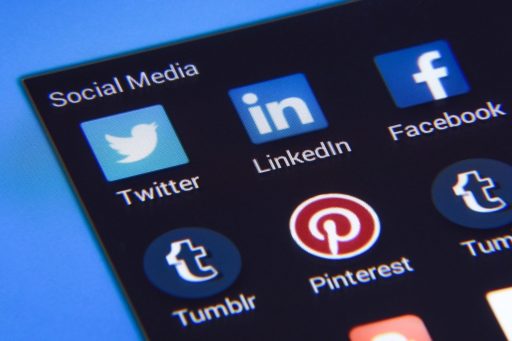“Attention is the rarest and purest form of generosity.” —Simone Weil
A couple of weeks ago, as we staggered into 2022, I made a New Year’s Resolution of such modesty, so incredibly pathetic, that it is almost embarrassing to admit here:
I was not going to check Twitter on Sundays.
I say “almost” pathetic, because you would think it ought to be pretty easy to avoid checking Twitter on Sundays. In fact, “Not-Checking-Twitter-on-Sundays” would seem to be a rock-bottom-basic gesture toward the idea of a “day of rest,” whether sacred or secular in nature.
I’m not talking about automatic timers on the wi-fi, or steaming pots of cholent in crockpots on the counter: The Calvinist church community that informed much of my youth frowned on newspaper reading on Sundays, at least in that era, and the call to “unplug” is just as prominent an emphasis among worldly Sunday yoga-mats-and-brunch-ers who do not appeal to any deity in their quest for transcendence.
In other words, I’m talking small potatoes.
But it was really hard. I got home from church and suddenly, I was not going to spend an afternoon bobbing on a sea of crossed-references — back and forth between the volleyed opinions of NYT columnists and random assholes. (And that’s not even counting the people I really admire and agree with, like Elizabeth Bruenig and Caitlin Flanagan, the latter of whom recently published the essay “You Really Need to Quit Twitter”.
Instead, there was a prevailing silence, a quiet frame for the afternoon. I read, yes, but I also stared at the angles of the room and watched the light fall. I felt both my physical presence and the portent of its decline. I can see why people try to escape.
It’s been two weeks now, and it is not any easier, but it is a notch on the trail. “Twitter is stupid anyway,” my sister said. Well yes, that is true — How could I have succumbed to this common, embarrassing habit that just about everyone on Earth knows is a scourge? Flanagan asks in her essay.
But Twitter is merely a synecdoche for all those other attention stealing technologies, like binge-watching and competing podcasts.
I’m contemplating what I might be able to jettison next. That wi-fi timer is not looking so bad now….
When your attention is gone, where do you go to get it back?
I can’t imagine a question more important for a platform that calls itself “Close Reading” — even though it, too, resides on the Internet. How can we avail ourselves of these technologies in ways where we are able to make them useful, yet not be mastered by them? That might sound like a question parachuted in from 1995, but, like rejecting the devil and all his works, is worth revisiting every season.
The promise of Close Reading is the prospect of a conversation of ideas across space and time, via the incarnation that literature provides.
It is the promise of conversation, of connection, of course, that social media and especially Twitter, offers. And by which it deceives. I can’t recall where I read this, but I remember someone saying that participating in social media was like “rushing out individual press releases all day long.”
No wonder we are cynical, then; fostering that conversation has become like a business. Hell, our personal life now IS our business — a friend of mine once referred to his wife’s job as “running her Facebook and Pinterest empires.”
I’d been wondering why the Joni Mitchell song “Free Man in Paris” had been stuck over my head the past few days.
It had been playing on WXPN in the kitchen, probably while I rinsed out the dishes in the sink. It has been cold here; my house has bad insulation, and I have been savoring the hot water as it runs over the back of my hand.
The Internet tells me that the song is about the music industry, and the protagonist is supposed to be David Geffen.
Now it seems perfectly obvious why I’d be thinking of that song in particular — because the narrator expresses just the kind of world weariness about the transactional nature of society, and online culture, that so many of us feel:
The way I see it, he said
You just can’t win it
Everybody’s in it for their own gain
You can’t please ’em all
There’s always somebody calling you down…
A pretty good description of Twitter, no? If I can silence those other voices, to still the jangling that seems so vital but leaves me so cold, then possibly I can find the ones to which I really should listen. That’s reading, of course — but it’s also prayer, or the reconstruction of Spanish verb conjugations I memorized decades ago.
It might — just might — be a timer on the wifi and hot cholent on the stove, though there’s no prohibition on my tuning the gas on and off. Because I can’t get these Joni Mitchell lines out of my head, which are both the song’s refrain, and implicitly, its warning:
I was a free man in Paris
I felt unfettered and alive
There was nobody calling me up for favors
No one’s future to decide.
You know I’d go back there tomorrow
But for the work I’ve taken on
Stoking the star maker machinery
Behind the popular song.
Caroline Langston was a regular contributor to Image’s Good Letters blog, and is writing a memoir about the U.S. cultural divide. She has contributed to Sojourners’ God’s Politics blog, and aired several commentaries on NPR’s All Things Considered, in addition to writing book reviews for Image, Books and Culture, and other outlets. She is a native of Yazoo City, Mississippi, and a convert to the Eastern Orthodox Church. She lives outside Washington, D.C., with her husband and two children.





